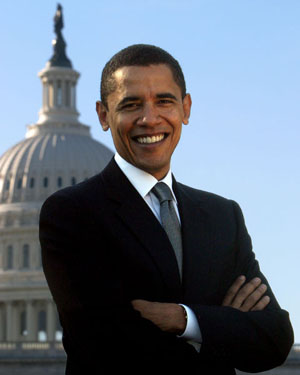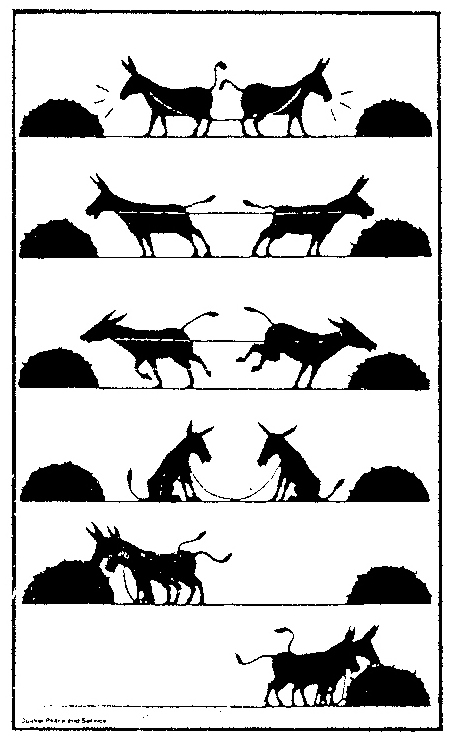Why Information Can Make For Grumpy Countries
 •
by
•
by Gaius Julius

Jon Stewart is all like "Yo broskis chill out, grab a natty ice and listen up"
Before I begin, this article is not directed at anyone or any country. I actually have had segments of it written since the Kyushu battle last year.
Recently I have been thinking about how information is disseminated in eRepublik. In many ways information secrecy is similar to real life. Few people ever know the full story. I think Waffles once described it perfectly saying "10-15 guys decide everything in PEACE/Phoenix for almost 2 years now." The case is of course the same or similar with EDEN. Think about it, only a few people know every detail about a plan. A great example are the swaps towards the end of WW III that turned initiative around on Russia. At the time 7-8 people (basically the Presidents involved and Shoot) knew what the plan was or who thought up what. This lack of information in the populace continues out of sheer necessity. The fact is that generally only the people involved in a discussion or planning session know the full story. Since the beginning of eRepublik the general population (even Congress and some mid level leaders) have survived on the partial stories told to them.
However, what I have realized is that the important thing is not who has that information or access, but how they disseminate it. This is where eRepublik differs greatly from the real world. In real life most citizens have news stations or services as their major sources for information. You get your information on your nations economy, government and society by reading the newspaper, looking at online news sites or watching TV. In real life rarely does the President or leaders of your country write an article or making a daily statement about what happened in that day. Sure the government holds press conferences, the President/Prime Minister makes a speech but these are often on rare occasions. If I want to find out about the state of Chinese-US relations I generally go to Nytimes.com or the economist before I email Obama.

Would be kinda cool if Obama wrote us an article every day.
In eRepublik we absolutely depend on our top leaders to directly communicate with us what is going on. If something happens we expect there to be an article explaining it right away. If you have a question about something, you can get a response from your President within a few hours of sending a pm.The President, besides being the commander and chief is also the informer in chief. Likewise the top citizens and the Presidents subordinates are also tasked with informing you, the average citizen. Who is going to doubt something if the President, MoFA and MoD all confirm it?
Of course now we have to think about how this role as chief informer creates a paradox of information in eRepublik.
Suppose you are the President of X country. Over the past 2 months your country has engaged in a number of military campaigns. While you are not solely responsible for this war you know that your popularity and term in office will depend on success or defeat. Now lets say that you lose an important battle. You know that the loss could be attributed to a lack of taking the time to strategize, and that you may have signed off on a faulty plan. Now in general the public does not know that you rushed a plan or made a poor choice. They do not know the details that occurred prior to this, so they do not have the proper information to criticize you, however they do expect you to discuss the defeat. So you now have an interesting choice; you can own up to your mistakes and face the punishment, or you can scapegoat your way out of it. The choice is obvious for that President or official, they want to keep their job and they want people to think they are doing well. So what happens, you redirect the blame, you point fingers at another ally or maybe even someone else in your government. This happens dozens of times in eRepublik, I have seen my friends and enemies do it and hell I have even done it myself.

Kind of like a lot of people when faced with cooperating with others.
In eRepublik people are so wrapped up in rampant nationalism that often its easy to redirect the blame, because people have trouble looking beyond the first or primary information they get. How many of you can say that you read spend a good portion of time on other countries forums? How many of you take the time to read your allies top five news feeds? Most eRep citizens accept that the story their leaders tell them is the whole truth. If a leader paints an allies attack as a greedy attempt at exploiting fighting elsewhere then this opinion will generally stick. The problem is that these stories governments and leaders paint are rarely full truths. One mans greedy attack is another mans attack to redirect enemies damage to a more important region.
Now don't get me wrong, Presidents or leaders do not always lie about the cause of a loss (or a victory). However, a partial truth or partial lie repeated over and over again builds a picture and a mentality that is hard to break. Often we as nations have a selective memory that loves to pick out the bad things and more recent memories. In choosing how we reflect on war efforts, diplomatic relations and planning it is always easy to accept others faults rather than our own. Often criticizing an ally is easier than accepting that they don't have the 5k active citizens, nor are they the same nation which topped the damage charts in defensive battles. In my time in eRepublik I have learned that most people if not all have trouble admitting that the problem may be themselves, and that often everyone suffers for it.
[img]http://s3.images.com/huge.15.75747.JPG[/img]
Something everyone is good at doing, but few are good at taking.
The important thing that we all have to remember is that while blaming someone as the sole cause for a problem or pointing fingers is easy. It is not always the best solution. Sometimes the best solution is sitting down and fixing things as a group. This is how EDEN eventually turned around WW III after all. We took a discombobulated assortment of allies who we're not coordinating and not fighting to their best abilities and helped each country fix what we perceived to be problems, thus making our whole alliance stronger for it.
p.s. Read this great article by my Spanish Brother Durruti. I think it dispels a lot of the myths about the "Superduperultrawearesocoolalliance "
-Gaius Julius


Comments
>_>
o/ Nice article.
Oh hi
fail
I love when you write articles. \o/
Very nice text. Voted.
Problem is not only when people get wrong info about some facts but having wrong people doing staff in a bad way, it's kinda difficult having people well informed about everything that happens, but it's quite easy getting them into bad facts. Bitching relationships and backstabing people it's easier than any other thing in this game, propaganda works specially well coming from Phx, we saw that in the past we are watching this now, calm this horses and keep working in the good direction is the only way.
Destroy things it's easy, let's build something, it's difficult and it's greater than any other thing.
The article is correct and I understand that player activity has dropped but I still can't shake the feeling that more could've been done, sorry. I don't mean to sound offensive/point fingers but one should be able to express his opinion
Excellent article.
Of course insightz I am not disputing that often countries do have bad time as allies. Just that often jumping to blame a country helps no one. All it does is make people less willing to cooperate and cause future problems which lead to more bad will. If I wanted to I could trace this cycle of blame all the way back to Kyushu where the US felt left down by several allies and did not want to cooperate with them for several weeks. This caused them to be mad at us and caused both sides to not cooperate and not fight with each other, thus spoiling prior good will.
Great article, as always \o
\o/
@ Gaius
Yep, I agree, the way it was all handled was very poor. But have to remember that sometimes people just need to vent and say things they don't really mean.
There should, however, be a line of communication and way to tell your friend you're not happy with what he did or didn't do without him getting offended so we can prepare and it doesn't happen again in the future. But as in real life, it's difficult to make it work, even if intentions are good
True words.
yes
Great Article
But seriously, these Servian trolls are so annoying. What's up with their eCountry? Do only 5 yr old morons play this game or are Servians really this stupid?
Perhaps the aspect of this game that comes closest to real life.
Voted!
I say we all blame Gates "Goats" Schellinger. He said he wanted to be the world's scapegoat, so lets take him up on it.
Nice
Gaius...this is why I love you.
Good article.
Gaius, thank you for writing. It's a pleasure to read your work.
Gaius...this is why I love you.
x2
Great article
Votado.
True, this.
Some of the articles that get written these days are the computer equivalent of drunk-dialing... if you had 24 hrs. to think about it, you'd realize it's a mistake to call up your cheating ex and vent at 2am. But if you can't/don't exercise impulse control, you can't take it back the next day.
v
[removed]
the truth. Everyone just needs to take a chill pill. Including us.
True
This article is articool, and one of the few intellectual ones. Unfortunately those aren't written very often.
Epic article is Epic
STRATEGERY
I'm Rod Damon and I approve this message.
Gaius, you should emphasize the importance of military campaigns for presidents by talking about the popular, then not so popular war against Mexico, when I think it was president Uncle Sam who later tried to become president of eLatvia after he was basically run out of the country, but was unsuccessful because of his failure in Mexico, and without the leader Sam was, Latvia was PTO'd, and was cast in the shadows until their BB.
tl:dr Mexico beat America causing Latvia to be PTO'd.
huh
Very good article!
Excellent work🙂
Wow Gaius, your article is so good even Mr. NewsuperallianceUSAfail himself, Bogdan is coming around. 🙂
I've missed your articles.
No one can resist my charm 😁
Nice
This is why the stats provided by Bogdan_L (and others) are so important. Figures never lie and based on them everyone can draw it's own conclusion. If you know what I mean ...
Great to have you back! Voted!
Voted.
agree
v+S
the problem is this place is run by retards now or at the very least 13 yr olds.
Voteski
Giddyup!
voted!